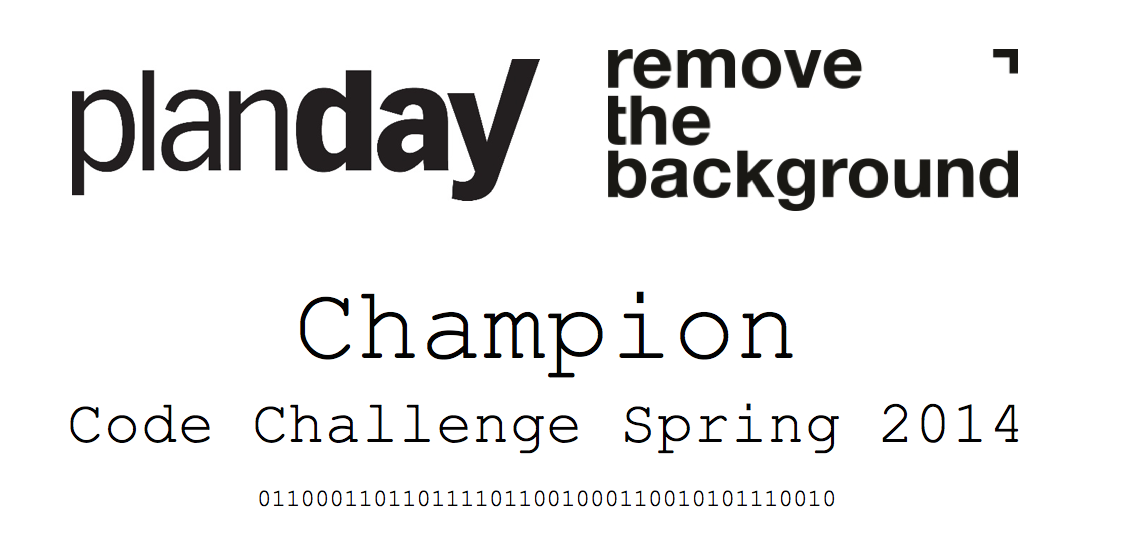Following my problem in the first post of Code Challenge series, it’s a solution.
Problem
A motor bike plate number is in the format [AB-CD EFG.HI]. Its value is defined by: AB x C + EFG x HI, if C is a letter, its value is its ASCII code. A plate number is called NICE one if its EFG contains its HI, then its value is doubled than normal. Give you a list of place numbers, find the biggest value.
For example: A plate 29-C1 320.12 has value 5783 (= 29*67+320*12)
What is the biggest value of
28-A1 493.68
83-Y3 453.83
17-Z7 439.48
29-C1 292.29
Solution
It seems easy where we can compute the value of a specific plate number and find a biggest value afterward.
But, please aware that there is a trick at if C is a letter, its value is its ASCII code. So C can be a digit or letter. Only if it is not a digit, we need to get its value by ASCII code.
Here is my solution in C#
using System;
namespace Solutions
{
internal class Problem1_PlateNumber
{
public static long PlateNumberValue( string plateNumber )
{
string[] parts = plateNumber.Split( new char[] { '-', ' ', '.' } );
int part0 = Int16.Parse( parts[ 0 ] );
int part2 = Int16.Parse( parts[ 2 ] );
int part3 = Int16.Parse( parts[ 3 ] );
int part1 = 1;
try
{
part1 = Int32.Parse( parts[ 1 ] );
}
catch ( Exception )
{
part1 = parts[ 1 ][ 0 ];
}
long value = part0 * part1 + part2 * part3;
if ( parts[ 2 ].Contains( parts[ 3 ] ) )
value *= 2;
return value;
}
public static void Main( string[] args )
{
string[] list = new string[] {
"28-A1 493.68",
"83-Y3 453.83",
"17-Z7 439.48",
"29-C1 292.29"
};
long max = 0;
string maxPlateNumber = string.Empty;
foreach ( string plateNumber in list )
{
long value = PlateNumberValue( plateNumber );
if ( max < value )
{
max = value;
maxPlateNumber = plateNumber;
}
}
// return max
}
}
}
Here is the solution in Objective-C, credit to Nghia Luong to share.
-(int)resultFromString:(NSString*) string {
NSArray *components = [string componentsSeparatedByString:@" "];
NSString *firstPart = components[0];
NSString *secondPart = components[1];
NSString *ab = [firstPart componentsSeparatedByString:@"-"][0];
NSRange cRange = NSMakeRange(0, 1);
NSString *c = [[firstPart componentsSeparatedByString:@"-"][1] substringWithRange:cRange];
int cRealValue = [c characterAtIndex:0];
NSString *efg = [secondPart componentsSeparatedByString:@"."][0];
NSString *hi = [secondPart componentsSeparatedByString:@"."][1];
int multiValue = 1;
if ([efg rangeOfString:hi].location != NSNotFound) {
multiValue = 2;
}
int result = ([ab intValue]*cRealValue +[efg intValue]*[hi intValue])*multiValue;
return result;
}
-(int)bigestValueWithArray:(NSArray*)arr{
NSMutableArray *resultArr = [NSMutableArray array];
for (NSString *str in arr) {
int result = [self resultFromString:str];
[resultArr addObject:[NSNumber numberWithInt:result]];
}
NSArray *finalArr = [resultArr copy];
finalArr = [finalArr sortedArrayUsingSelector: @selector(compare:)];
return [[finalArr lastObject] intValue];
}
// And the implement:
NSArray *array = [NSArray arrayWithObjects:@"28-A1 493.68", @"83-Y3 453.83", @"17-Z7 439.48", @"29-C1 292.29", nil];
int result = [self bigestValueWithArray:array];
NSLog(@"result %d", result);
No code
Yes, at least we can solve it by Excel as can compute a plate number value by this function
LEFT(A2,2)*IF(ISNUMBER(MID(A2,4,1)), MID(A2,4,1), CODE(MID(A2,4,1)))+RIGHT(A2,2)*MID(A2,7,3)
Note:
My full input is in attachment, not just a simple input above as it’s easy to solve manually.
[wpba-attachment-list]



